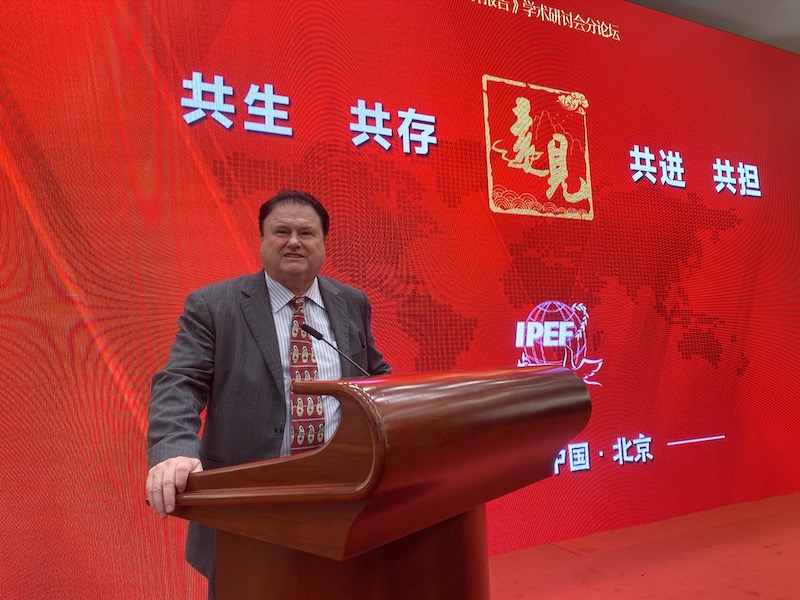Jeffrey D. Martin is an accomplished International Entrepreneur in Beijing, China. He brings over three decades of international experience, and has become known as a skilled leader within business consultancy. His focus is primarily on Asia and beyond, and is a skill that he has focused on building over the years. He is focused on helping his clients achieve their long-term goals through strategic efforts. His work is focused primarily in Malaysia, Vietnam, Hong Kong, Cambodia, Singapore, and Thailand.

In addition to his accomplished career as an international entrepreneur, Jeffrey D. Martin has also worked extensively in the movie productuction and music production industries. He operated his own movie production business from 1989 to 2003, and was called Bulls on the Run Productions, Inc. His prestigious accomplishments within movie and music production include Legend of Grizzly Adams and Blood, Sweat, and Bullets. Jeffrey acted as the producer on both films.
Following his time working with Bulls on the Run Productions, inc, Jeffrey D. Martin went on to found Skreem Records Corporation, a record label that he started after selling his production company. One of the artists that experienced success with the record label was Jeffrey’s son, who played with the band, 3rd Wish. They would go on to earn ten gold records and two platinum albums, marking a distinguished music career. In addition to the success of 3rd Wish, Skreem Records also signed on rapper Pat Moe and Willie Will. Jeffrey would end up selling the record label in 2019.
Outside of his work within the movie and music production industries, Jeffrey D. Martin also works through his business, Martin Consultants, LLC. He has helped Chinese companies by offering business consulting work on how to do business and operate successfully in the United States. Additionally, he has helped advise over 100 companies in China, and has provided them with valuable business insights and services. His experience over the last 20 years has helped Jeffrey build his knowledge of these topics, and is passionate about helping international companies achieve their goals.
To learn more about Jeffrey D Martin, visit him on Crunchbase!
How to Mediate a Conflict Between Employees
As a manager, it will be up to you to settle any disputes that arise between your employees. Letting a conflict fester will create a difficult situation and adversely affect the company culture as a whole. Before you address the conflict, you should have a plan for mediating the discussion.
Meet With Both Parties
Meet with both employees at the same time when mediating a workplace conflict. This will help you avoid situations in which an individual misses hearing important statements. During the meeting, give each person time to explain their side of the story and instruct the other party to remain silent until it’s their time to speak. Any interruptions should be stopped immediately, and the interrupting employee should be advised against further outbursts.
Ask For Recommendations
Once you hear each person’s version of the problem, you should ask each of them to provide you with three or four resolutions. These should be ideas that will help your employees find a way to feel satisfied with the resolution of the conflict. As you discuss implementing some of these recommendations, keep in mind that some of them may involve your direct participation or a change to established procedures. You’ll have to decide which suggestions are feasible and worthwhile to try.
Discuss What Each Individual Can Contribute
Even if you find a way to grant the recommendations offered by each employee, the individuals will still have to modify their workplace behavior. Ask each employee what the other individual can do better. This might involve ceasing a particular behavior or doing something more frequently. Before you end the meeting, get each employee to commit to making the necessary changes. This will help you evaluate how well the conflict has been resolved at a later date by providing a starting point for settling the matter.
Finish the meeting by instructing your employees to settle the conflict among themselves. Advise them that a continuation of the conflict will force them to take stronger disciplinary measures. Be sure to emphasize that you have faith in their ability to settle the matter in a mature way. You should follow up with the employees after a short time to ensure the issue has been settled.
